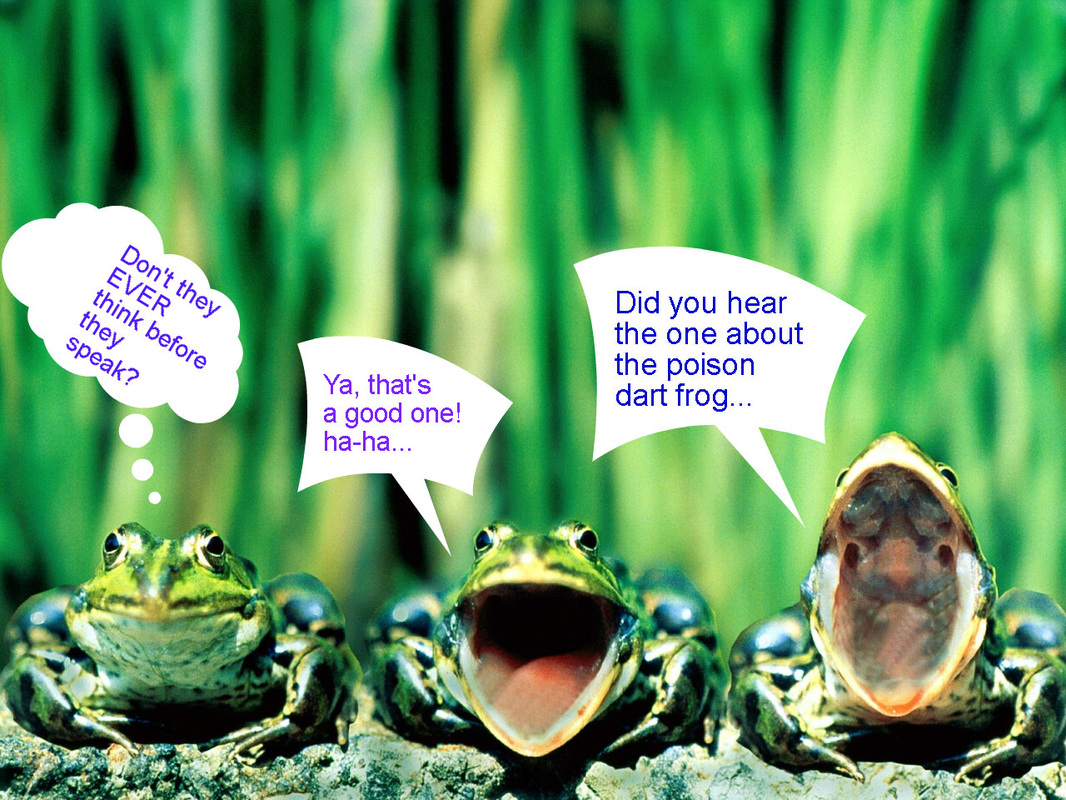But, often, when we speak, we fall back on our normal vocabulary, totally unaware that the words we use can reflect our implicit biases. We may not think we are prejudice, but our words may say otherwise; that men are stronger than women, or that blondes aren't as smart as brunettes, or that blacks are more violent than whites....
This subtle form of prejudice can be devastating and may influence the way others think about themselves for the rest of their lives. In the past, I've written many times about mindfulness and how we can use it to improve our behaviour and our thoughts. Mindfulnss, it turns out, can lso help us learn new and less hurtful ways of speaking. Researchers call these hidden biases "linguistic intergroup bias" or LIB. Basically, what this means is that we expect those in our "in-group" to behave positively and those in our "out-group" to behave negatively. This reflects back as a form of "stereotyping" and, as such, may influence the way we speak...and the words we use. These same researchers then wondered if mindfulness could change our perceptions of those in our "out-groups." Could we, if we thought about what we planned on saying before we said it, actually lessen our biases? The answer is "YES!"
Often our biases...our stereotypes...are deeply engrained; many times being handed down to us by our parents and grandparents. Mindfulness seems to be a very effective antidote to LIB in the short-term. Researchers are hopeful that, with practice, mindfulnss and language can be lead to long-term changes, as well. We may not have the intention to verbally hurt others, yet the words we choose to use often do just that. Growing evidence suggests mindfulness can reduce 'stereotypical and prejudicial cognition.'
Interacting with people (or frogs) from our "out-groups" can be stressful. This is where mindfulness can, at least partially, play a role in making a difference in how we see these "others." Mindfulness interrupts our initial thought patterns. It could even affect our physical response. Mindfulness, it seems, may not only reduce those "clammy flippers/hands" we get when we're uncomfortable, it may also reduce the prejudice words that come out of our mouths. And who wouldn't want to stop staying hurtful things?
My opinion is that taking even a small step towards seeing "we" instead of "us" and "them" will go along way in making not only our communities, but our world, a better, happier place for all of us. Mindfulness can be that first, small step. So, in a nutshell, "Think before you speak." Do you really mean what you're about to say? If you're anything like me, then probably not. The words we use are automatic. Words hurt. Becoming more mindful of our language can offer us a quick and easy fix to lessen our biases and the stigma we place on others.

 RSS Feed
RSS Feed